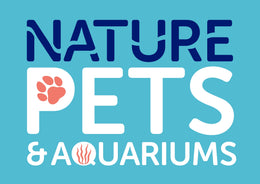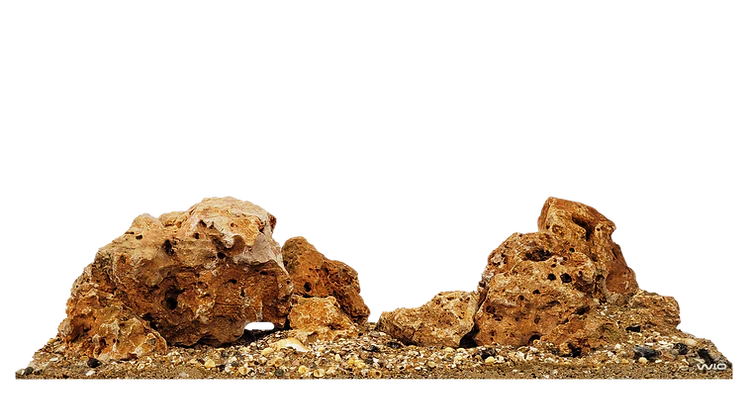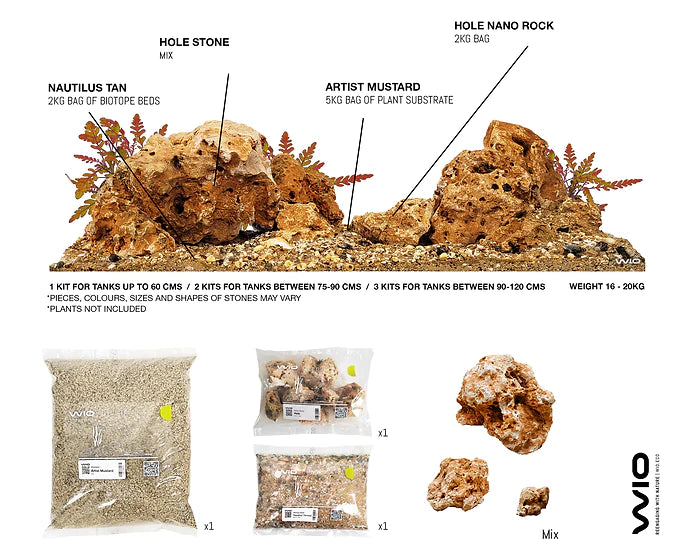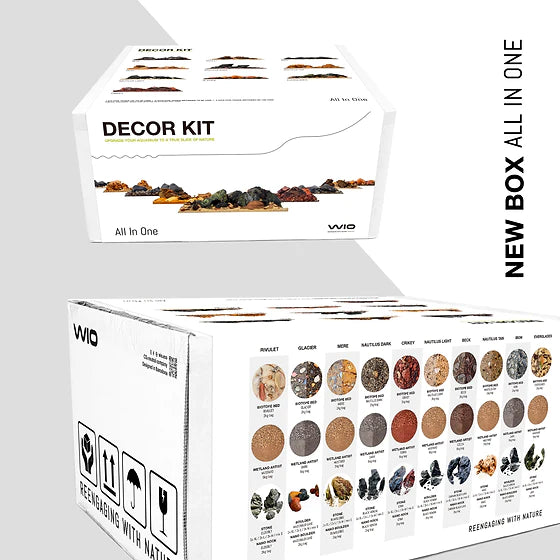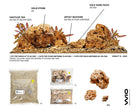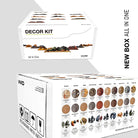WIO - Nautilus Tan River Kit
Bring the diverse and unique aquatic ecosystems of the Great Rift Lakes of Africa to your aquarium with our Nautilus Tan River Kit. This all-in-one kit includes a mix of earthy-colored sands, gravels, stones and shells, perfect for recreating biotopes of lakes, estuarine, and marine environments.
-
Description
Our Nautilus Tan River Kit is inspired by the stunningly diverse and unique aquatic ecosystems found in the Great Rift Lakes of Africa.
The Great Rift Lakes of Africa are a series of interconnected lakes that lie along the eastern part of the African Rift Valley. The lakes are part of a unique aquatic environment that has evolved over millions of years. These lakes are known for their high levels of biodiversity and are home to many endemic species of fish and other aquatic organisms.
The lakes vary in size, depth, and salinity, but all of them are characterized by crystal-clear waters and an abundance of fish. Lake Tanganyika, for example, is the second deepest lake in the world, with depths reaching over 1,400 meters. It is home to over 350 species of fish, many of which are found nowhere else on Earth.
Lake Victoria, the largest lake in Africa and the second-largest freshwater lake in the world, is known for its unique cichlid fish species. Over 500 species of cichlids are found in the lake, with new species still being discovered.
Lake Malawi, also known as Lake Nyasa, is another of the Great Rift Lakes. It is the ninth-largest lake in the world and is home to over 1,000 species of fish, including the colorful and popular cichlids.
The River Kit, with a carefully selection of colors and textures, are reminiscent of the rich and varied habitats found in these lakes. With a mix of earthy-colored sands, gravels, and different-sized shells, this kit creates a natural and realistic look in your aquarium.
The shells in Nautilus Tan provide not only aesthetic value but also serve as a functional element in the biotope. Many fish species, especially cichlids, use shells as hiding spots or as a place to lay eggs. The shells also provide natural shelter and foraging opportunities for smaller aquatic creatures, helping to maintain a healthy ecosystem.
Included in this kit is a selection of our Hole Stones, which display a range of warm to pale ochre colors and provide a natural and realistic look to your aquarium. The kit also includes our Wetland Artist Mustard substrate, which is ideal for supporting lush plant growth and blends beautifully with the colors of the hardscape.
This kit is perfect for recreating the biotopes of Rift lakes in Africa, where cichlid fishes engage with shells as part of their life cycles by crushing, moving, or living inside them. It can benefit fishes and invertebrates that thrive in such habitats, and with the enrichment line Shell Shelter normal and XL, Nautilus Tan can provide even more natural stimulation to your aquatic pets.
With an all-in-one kit that includes a Riverbed, Nano boulders, Artist substrate, and Stones, Nautilus Tan is easy to manipulate and spread in your aquarium. Let your imagination transport you to the depths of the Great Rift Lakes of Africa and visualize the diverse and unique aquatic species living and thriving amongst the earthy color sands, gravels, and shells of this kit.
-
Key Points
-
Characteristics
-
Usage
1.Prepare Your Aquarium:
- Ensure that your aquarium is placed on a flat, leveled, and stable surface.
- Confirm that you have all the necessary components such as lighting, filtration, and heating systems ready to set up your aquarium.
- Now, you are ready to embark on creating your new scape with our all-in-one River Kits.
2.Plan Your Design:
- Gain inspiration from real-life riverbeds and aquatic ecosystems by studying photographs and conducting research on the specific biotope you want to recreate. You can also find inspiration on our social media platforms.
- Take the time to visualize and plan the design of your riverbed, considering the size and layout of your aquarium and the unique features of your chosen biotope.
- Research the specific requirements and preferences of the aquatic species you plan to keep in your riverbed to create an optimal environment for their well-being.
- Consider the placement of hardscape materials such as stones and wood pieces, imagining how they will interact with the substrate and aquatic plants.
3.Spreading the Substrates:
- Our Wetland substrate is ready to use. Distribute it in the area where you want your plants to grow, adding a thin layer of approximately 1 cm.
- Apply a similar 1 cm layer of the Riverbed substrate mix, covering the base layer. This separation creates distinct areas for nutrient-rich soil and cosmetic substrate, catering to both plant growth and the aesthetics of the biotope.
- This 1 cm base layer ensures a secure foundation for your hardscape while protecting the aquarium's glass from scratches.
4.Place the Hardscape Materials:
- Arrange the hardscape materials, such as stones and wood pieces, in a way that mimics the natural formations found in your chosen biotope.
- Feel free to experiment with different hardscape arrangements to achieve your desired aesthetic and create a unique and captivating display.
- Keep in mind the visual balance and focal points in your design, ensuring the creation of hiding spots and sheltered areas for your aquatic pets.
- Finally, add the Nano Rocks around the larger stones to enhance the naturalistic scape.
5.Add the Remaining Substrates:
- Once the hardscape is complete, add the remaining Wetland substrate on top of the base layer in the planted area. Aim for a depth of at least 3 cm to provide sufficient space for plant growth. Vary the thickness of the substrate in different areas according to desired aesthetics and plant types.
- Finally, add the Riverbed substrate on top of the base layer. The arbitrary distribution of the bag content creates a natural riverbed impression with random densities and content mix, resulting in an easy, fun, and impressive way to create a true slice of nature.
- Maintain the lowest thickness by the front glass, aiming for less than 1 cm to achieve the best aesthetics.
6. Add Aquatic Plants:
- Before planting, moisten the soil to help the substrate settle and create a stable base for your aquatic plants.
- Carefully plant the aquatic plants in the substrate, considering their specific growth requirements and compatibility with the chosen biotope.
- Arrange the plants in a way that enhances the natural look and complements the overall design of your riverbed.
7.Fine-Tune the Design:
- Step back and assess the overall design of your riverbed, making any necessary adjustments to achieve the desired look and functionality.
- Consider adding additional decorations such as roots to further enhance the natural aesthetic.
8.Fill the Aquarium:
- Slowly fill the aquarium with water, pouring it gently onto a hard surface to avoid disturbing the substrate and plants.
- Monitor the water level to ensure it is appropriate for the chosen biotope and aquatic pets.
- During the initial setup period, the aquarium water may turn cloudy, which is normal. Don't worry, though. Simply turn on the filter, and the cloudiness should disappear within a few hours.
Monitor and Maintain:
- Regularly monitor the water parameters, including temperature, pH, and ammonia levels, to ensure a healthy environment for your aquatic pets.
- Perform routine maintenance tasks, such as regular water changes, to maintain water quality and remove any accumulated debris.
- Trim and prune your aquatic plants as needed to promote their growth and maintain the desired aesthetic.
- Keep an eye on the health and behavior of your aquatic pets, making adjustments as necessary to create an optimal environment for their well-being.
By following these usage instructions and properly maintaining your River Kit aquarium, you can enjoy a stunning and natural-looking aquatic display that replicates the beauty of real riverbeds and biotopes. Let your creativity flow and immerse yourself in the tranquility of nature right in your own home.
